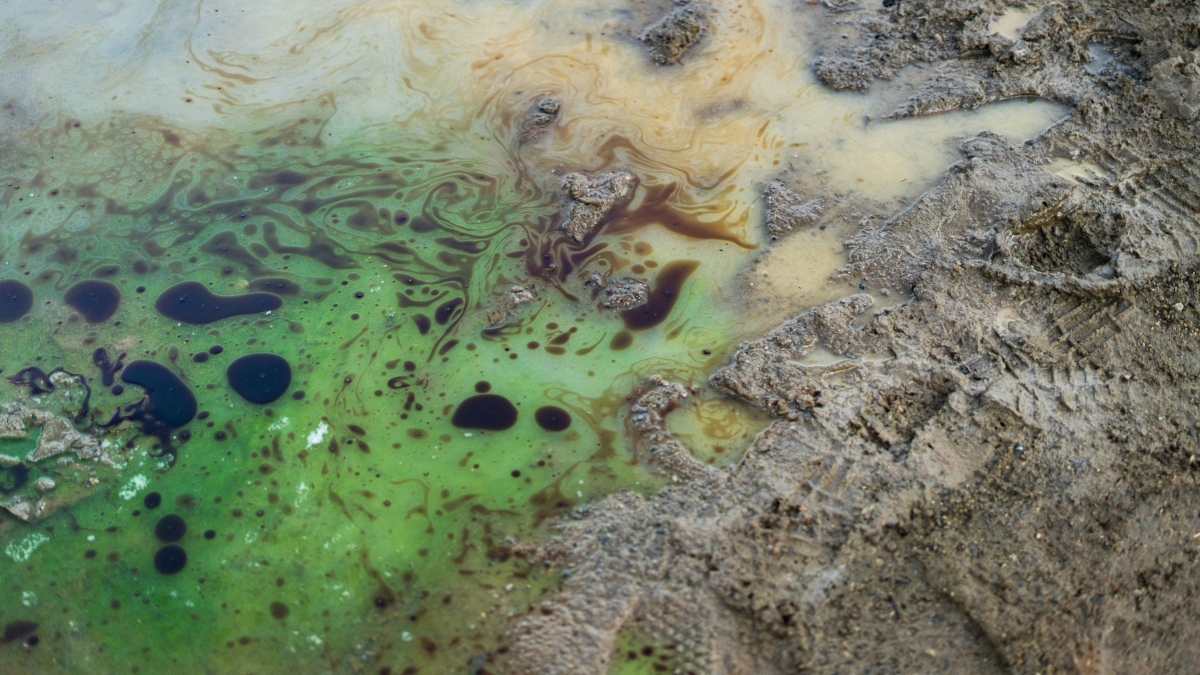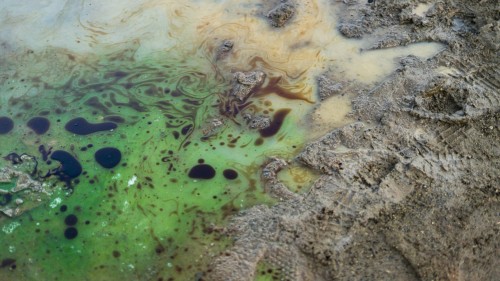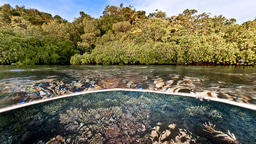Call for papers: Environmental pollution in aquatic systems Collection
Published in Earth & Environment

Explore the Research

Environmental pollution in aquatic systems
This Scientific Data Collection presents descriptions of contamination and pollution data collected from marine and freshwater ecosystems.
Collection Overview
Scientific Data has launched a Guest-Edited Collection on Environmental pollution in aquatic systems.
Pollution in aquatic environments can have severe consequences for ecosystems, wildlife, and human health. This Collection presents descriptions of contamination and pollution data collected from marine and freshwater ecosystems. Data can include information on plastic pollution, chemical and agricultural runoff, biological contamination, and other aquatic pollutants.
This will be a Collection of data descriptors and will be open for submissions from all authors – on the condition that the manuscripts fall within the scope of the Collection and of Scientific Data more generally. We are welcoming submissions until 12th March 2026.
Why is this Collection important?
"Pollution in aquatic systems is a planetary-scale challenge undermining ecosystems, public health, and SDG 14. This Collection curates validated, FAIR, reusable datasets—with open, machine-readable metadata—covering marine and freshwater pollution from microplastics to chemical/agricultural runoff and biological contamination. We spotlight interoperable data that enable synthesis, benchmarking, and machine-learning–ready monitoring, linking field surveys, laboratory analytics, and remote sensing. Submitting here amplifies impact: your dataset gains high visibility, clear citation, and long-term reuse worldwide, accelerating evidence-based management and One Health responses."
- Dr. Jingzhen Wang, Guest Editor
Why submit to a collection?
Collections like this one help promote high-quality science. They are led by Guest Editors, who are experts in their fields, and In-House Editors and are supported by a dedicated team of Commissioning Editors and Managing Editors at Springer Nature. Collection manuscripts typically see higher citations, downloads, and Altmetric scores and provide a one-stop-shop on a cutting-edge topic of interest.
Who is involved?
Guest Editors:
- Vassilis J. Inglezakis, University of Strathclyde, UK
- Jingzhen Wang, Beibu Gulf University, China
Internal Team:
- In-House Editor: Elizabeth Miller, Scientific Data, UK
- Commissioning Editor: Sophie Gray, Fully OA Brands, Springer Nature, UK
- Managing Editor: Sarah Jane Hunt, Fully OA Brands, Springer Nature, UK
How can I submit my paper?
Visit the Collection page for more information on the Collection, and how to submit your article.
Follow the Topic
-
Scientific Data

A peer-reviewed, open-access journal for descriptions of datasets, and research that advances the sharing and reuse of scientific data.
Related Collections
With Collections, you can get published faster and increase your visibility.
Data for crop management
Publishing Model: Open Access
Deadline: Apr 17, 2026
Data to support drug discovery
Publishing Model: Open Access
Deadline: Apr 22, 2026




Please sign in or register for FREE
If you are a registered user on Research Communities by Springer Nature, please sign in
Hi, it is nice to be a member of this scientific community at Springer Nature. I have published with Springer before in the Journal of Environmental Monitoring and Assessment. What is the impact factor of this journal?
Hi Karim, Scientific Data has a 2024 Impact Factor of 6.9, and the 5-year Impact Factor is 8.7.
Thank Dr Sophie. Please can you assist with plans to submit my work under a standard licence? Because I understand that publishing in open access requires publication fees.